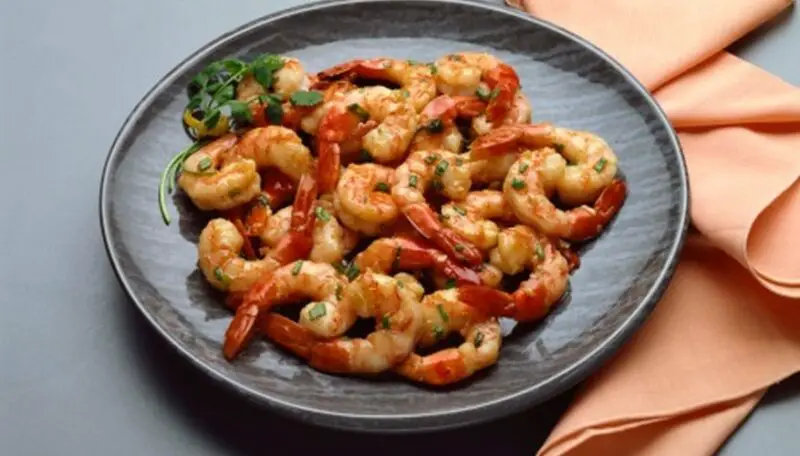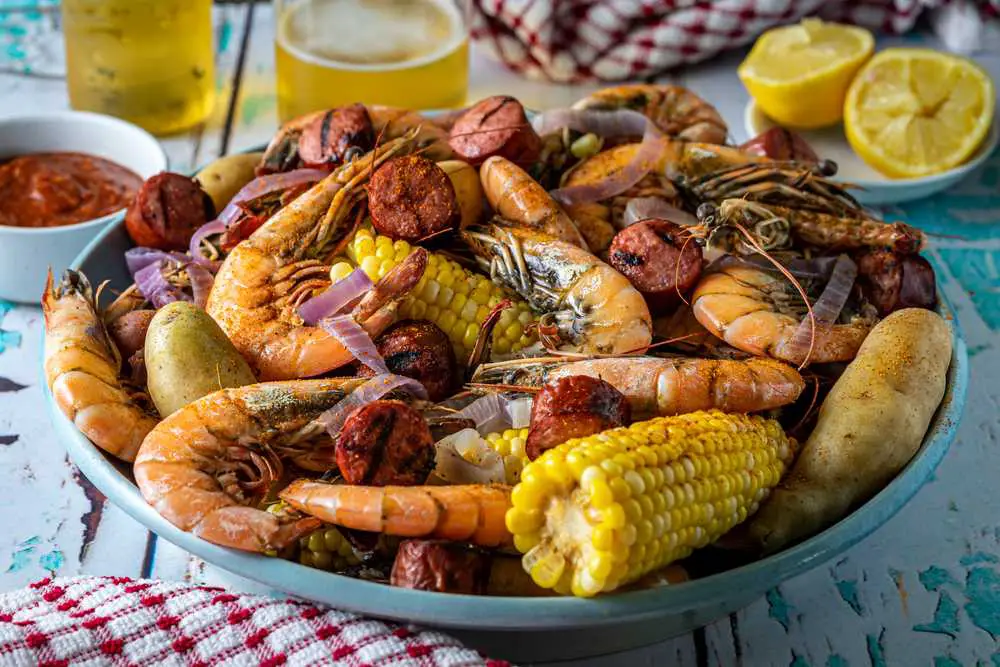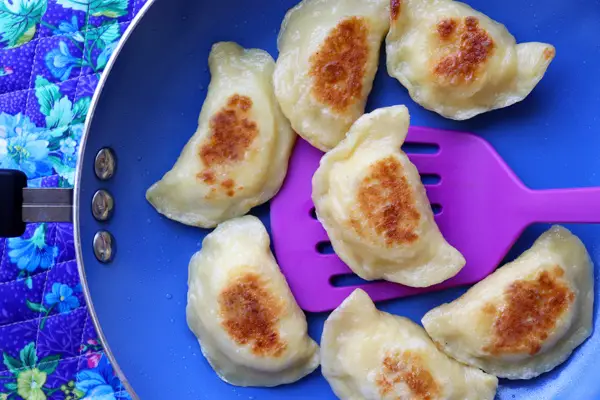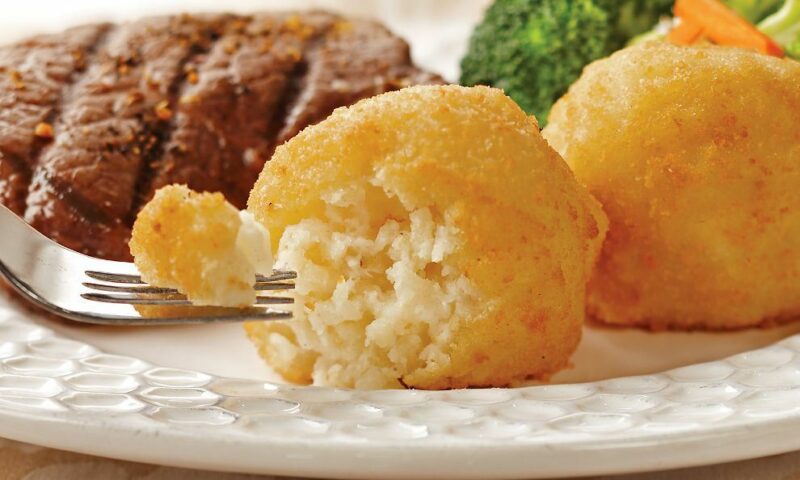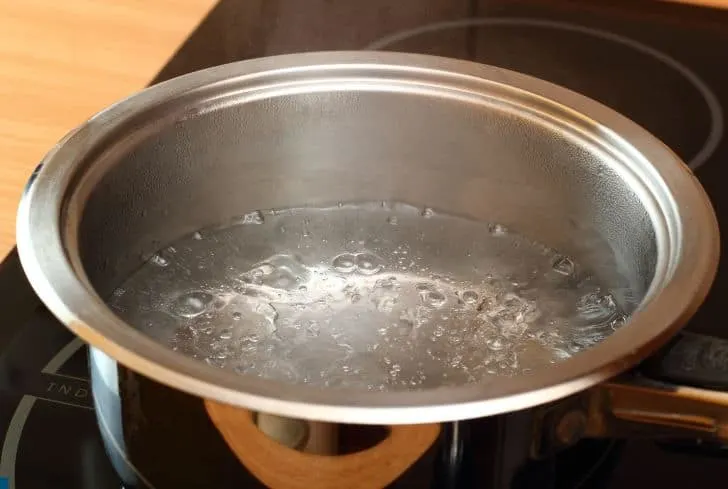How to Tenderize Cooked Shrimp
If you’ve ever made shrimp and found it tough and rubbery, you’re not alone. Even though shrimp is a delicious and healthy protein option, if it’s not cooked properly or tenderized before cooking, it can turn out less than appetizing. However, with a few simple steps, you can achieve perfectly tender, juicy shrimp every time. In this article, we’ll explore the different methods of tenderizing cooked shrimp, tips for proper handling, and delicious recipes to try out.
Why Is It Necessary to Tenderize Cooked Shrimp?
Cooked shrimp can sometimes end up being tough and rubbery. This is because overcooking or undercooking can cause the proteins in the shrimp to tighten up, making it difficult to chew and swallow. Additionally, shellfish like shrimp are naturally more delicate than other proteins like beef or chicken. As a result, they require extra attention when cooking to ensure the best texture possible.
Tenderizing the cooked shrimp before cooking it again helps break down those tightened proteins and improves overall texture and flavor.
Methods of Tenderizing Cooked Shrimp
Now that we know why tenderizing is important let’s take a look at some effective methods for doing so.
1. Brining
Brining involves soaking the shrimp in saltwater before cooking it. The saltwater helps break down the proteins in the shrimp and enhance their natural flavor.
Ingredients:
- 4 cups of water
- ¼ cup salt
- 1 lb of cooked shrimp
Detailed Steps:
- In a large bowl, mix salt and water until the salt has dissolved.
- Add the cooked shrimp to the saltwater and let it sit for about 30 minutes.
- Remove the shrimp from the brine and rinse them under cold water before cooking them in your desired method.
2. Marinating
Marinating is another method of tenderizing cooked shrimp. It also adds extra flavor to the shrimp by infusing it with various marinade ingredients.
Types of Marinades:
- Citrus-based marinades (lemon, lime, orange)
- Vinegar-based marinades (balsamic, red wine, apple cider vinegar)
- Fruit-based marinades (pineapple, mango)
- Herb and spice-based marinades (garlic, ginger, cumin)
Essential Ingredients and Ratios:
- 1/4 cup of oil
- 1-2 tablespoons of acid (vinegar or citrus juice)
- Aromatics (garlic, ginger, herbs) to taste
Detailed Steps:
- In a mixing bowl, combine oil, acid, and aromatics of choice.
- Add cooked shrimp to the bowl and toss around until evenly coated in the marinade mixture.
- Cover the bowl with plastic wrap or a lid and refrigerate for 30 minutes to several hours depending on how much time you have.
- Remove shrimp from the marinade and cook as desired.
3. Enzymatic Tenderizing
Enzymatic Tenderizing uses natural tenderizing agents to break down the proteins in shrimp. The enzymes found in kiwi and pineapple make them popular choices for this method.
Natural Tenderizing Agents:
- Fruits (kiwi, pineapple)
- Baking soda or baking powder
- Dairy products (buttermilk, yogurt)
Detailed Steps:
- Puree peeled kiwi or fresh pineapple until smooth.
- Coat cooked shrimp evenly with a thin layer of the fruit puree.
- Marinate coated shrimp for 20 minutes – 30 mins.
- Rinse off the pureed fruit thoroughly with water.
- Cook your shrimp as desired.
Note: Be mindful not to overdo it since too much enzyme can result in overly mushy and overly tender shrimp.
Note: For more significant time intervals or if you find that your shrimp is becoming too mushy or droopy, reduce the amount of enzyme usage.
4. Cooking Techniques
The cooking techniques used in preparing shrimp can also significantly impact tenderness and texture.
- Grilling:
- Sautéing:
Grilling adds a smoky flavor and a nice crispy crust that makes it even more satisfying. However, cooking shrimp on high heat on the grill for too long can lead to chewy, overcooked pieces of shrimp. To avoid this, cook your shrimp on a very hot grill for two to three minutes per side. Grilled shrimp pairs well in BBQ sauce and also ideal for kabobs.
Sautéed Shrimp is quick and easy to prepare. The rule of thumb here is not to overcrowd the shrimp in the pan. Overcrowding results in steaming instead of sautéing, which makes the shrimp mushy or rubbery.
5. Mechanical Tenderization
Mechanical Tenderization involves physically breaking down the fibers in shrimp to achieve a tender result. Common methods are using a meat mallet or food processor.
- Using a food processor or meat mallet:
- Tips for Avoiding Over-tenderizing:
- Be careful of how many times you hit your cooked shrimp when using this technique since it doesn’t take much effort to pass over into over-tenderization.
- Be gentle with the shrimp while cooking as they are already fragile after tenderizing.
To use this method, place cooked shrimp in a food processor or between pieces of plastic wrap and beaten several times with a meat mallet or rolling pin gently. This technique works best on larger-sized cooked shrimps (Jumbo Shrimp Size).
Tips for Properly Handling Shrimp
To help ensure that you start with quality ingredients and give your seafood the utmost care while preparing it, here are a few tips:
- Choose fresh shrimp that smells like seawater. Fresh shrimp should have a bright, slightly translucent appearance and firmness as well as a mild saltwater smell.
- Store uncooked shrimp in the freezer and thaw overnight in the refrigerator before preparing. To freeze cooked shrimp, keep them stored in an airtight container or plastic bag in the freezer for up to three months.
- Never reuse marinades or sauces in which you’ve already soaked raw shrimp since this can introduce harmful bacteria or cause cross-contamination.
Factors That Affect Shrimp Texture and Tenderness
The type of shrimp, such as black tiger prawns or white shrimp affect how they react to different cooking methods. In general, larger shrimps tends to be firmer and take longer to cook, while smaller sizes tend to cook faster and can become rubbery if overcooked. Cooking process used also varies from recipe to recipe and choice of tenderization method will differ based on selected preparation method.
Recipes Using Tenderized Cooked Shrimp
Here are two recipes that will delight your palate using tenderized cooked shrimp:
1. Honey Garlic Shrimp Stir Fry Recipe
This Honey Garlic Shrimp Stir Fry Recipe is quick and easy to make and packed with flavor perfect for lunch or dinner.
Ingredients:
- Cooked Shrimps
- 3 tablespoon olive oil
- 1 garlic clove, minced
- Salt pepper
- Honey (Optional)
- A teaspoon of Soy sauce
- A teaspoon of corn starch(Optional)
- 1-2 teaspoons of red pepper flakes(Optional)
Detailed Steps:
- Whisk together honey, soy sauce, red pepper flakes, and cornstarch until it thickens.
- In a large skillet, heat the olive oil over medium-high heat.
- Add the garlic to the skillet and sauté for about 30 seconds.
- Season the shrimp with salt and pepper and add it to the skillet. Add the honey mixture to it as well and cook until everything is cooked through (usually takes about 5 minutes).
- When finished, serve hot with your favorite side dish.
2. Spicy Creamy Seafood Pasta Recipe
This Spicy Creamy Seafood Pasta Recipe is rich in flavor as well as creamy, scrumptious making for a luxurious seafood feast. The tenderized shrimp sits atop a delicious bed of spaghetti coated in flavorsome sauce :
Ingredients:
- Baby Shrimps frozen or cooked
- Garlic clove
- Lemon zest
- Cream Cheese
- Salt
- Sauce:
Cream Cheese
Half- and -Half
Parmesan Cheese
Italian seasoning
Garlic minced
Salt to taste
Detailed Steps:
-
Sauce:
- Stir in the cream cheese and let it cook for a minute until melted.
- Add half-and-half, parmesan cheese, Italian seasoning, and salt to the pot.
- Let the sauce simmer on low-medium heat, whisking occasionally until the sauce has nicely thickened.
- Heat oil over medium heat, add garlic; then stir fry (Add chilies-if using) for a minute until fragrant before adding cooked shrimp to the skillet.
- Add some lemon zest and mix thoroughly.
- Add noodle and mix pepperil evenly. Then gradually pour in sauce to coat all the noodles and shrimp with spatula
- Once done, plate up with freshly grated parmesan cheese and chopped parsley.optional
In a pot over low-medium heat, start by melting butter before stirring in the garlic cloves.
Pasta:
FAQs on Tenderizing Cooked Shrimp
1. Can you tenderize already cooked shrimp?
Yes! You can tenderize the already cooked shrimp using various methods such as marinating, brine, or enzymatic tenderization. Choose a gentle method that requires minimal manipulation and can handle already cooked shrimps.
2. How long does it take to brine cooked shrimp?
It takes approximately 30 minutes for brining pre-cooked shrimp.
Conclusion
Tenderizing cooked shrimp is essential in ensuring you have palatable seafood on your plates. There are several ways of tenderizing cooked shrimps available in your kitchen cupboard that you can employ confidently. These techniques will give you perfectly tender shrimps, with nuanced flavors to indulge, and stun your guests with your seafood prowess.
Frequently Asked Questions
#### How can I tenderize already cooked shrimp?
There are a few methods that you can use to tenderize cooked shrimp. One is to soak them in milk or buttermilk for up to 30 minutes before reheating. Another option is to lightly salt the shrimp and let them sit for a few minutes before heating up.
#### Will overcooking shrimp make them more tender?
No, overcooking shrimp will actually have the opposite effect and make them tough and rubbery. Cook shrimp only until they turn pink and are just cooked through.
#### Can I use a meat tenderizer to tenderize cooked shrimp?
Yes, you can use a meat tenderizer to beat the shrimp gently and help break down their fibers. Just be sure not to smash them too aggressively, or you risk turning them into mush.
#### How long should I cook raw shrimp before tenderizing it?
If you’re planning to tenderize raw shrimp, it’s best to do so before cooking by marinating them in an acidic liquid like lemon juice or vinegar for up to 30 minutes. Then, cook as desired, being careful not to overcook.
